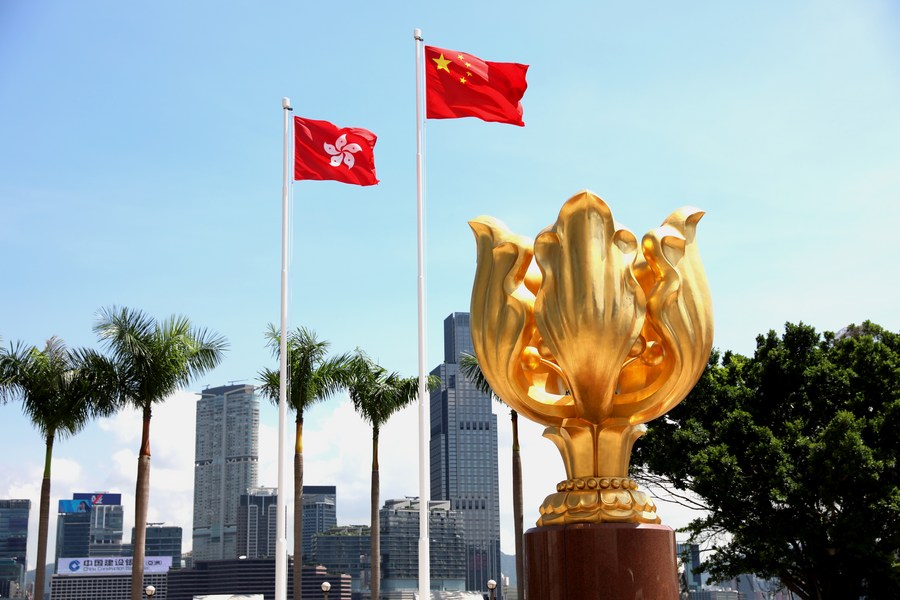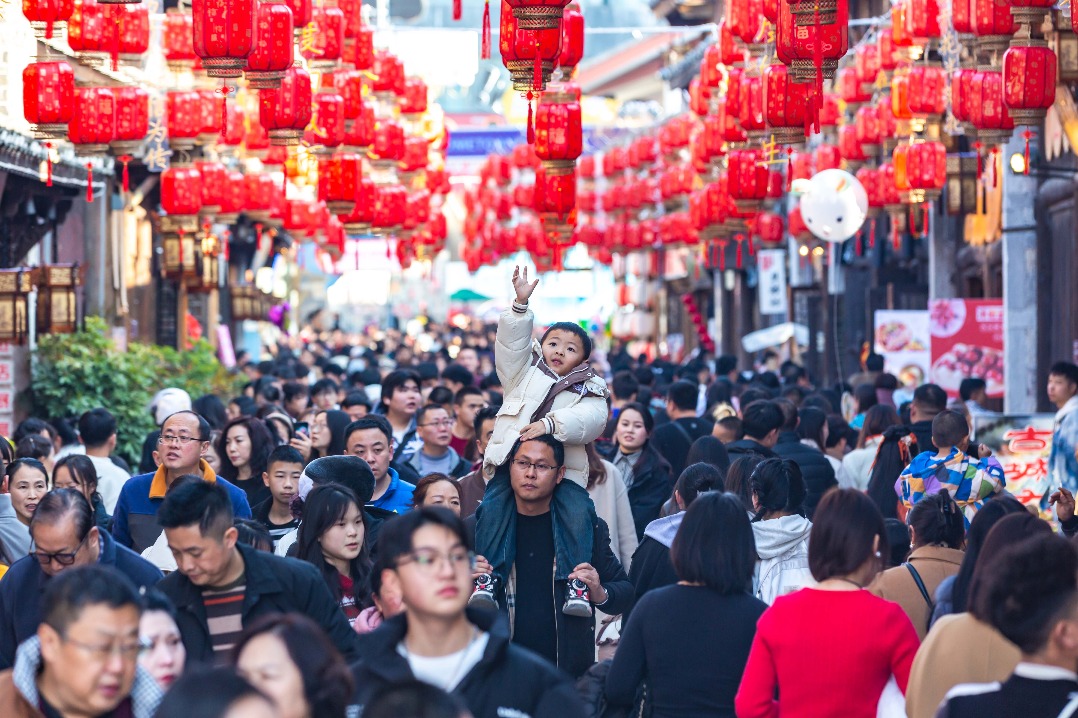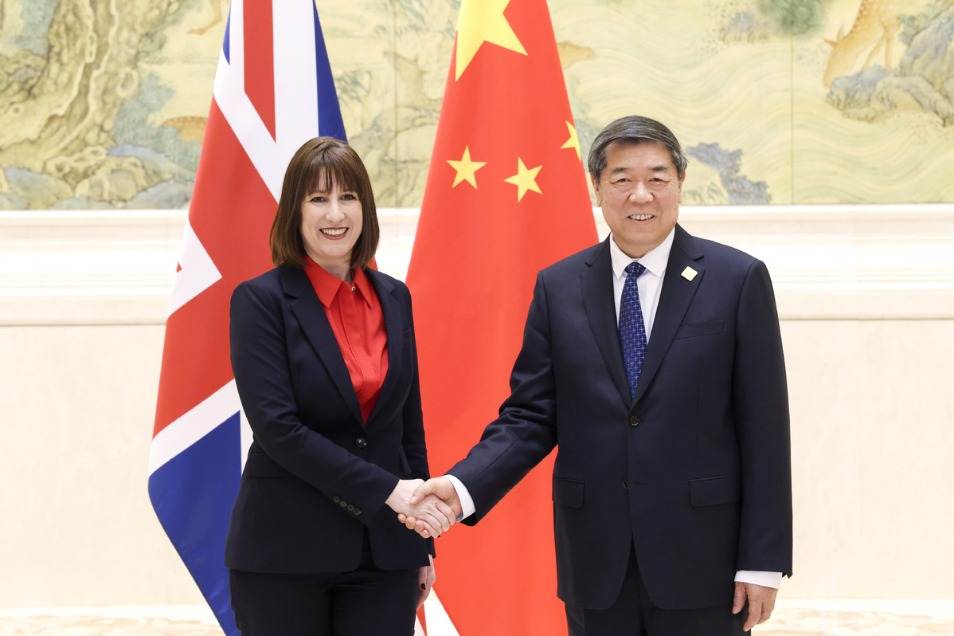Electoral reform to plug HK loopholes


A draft decision on improving the electoral system of Hong Kong submitted to the National People’s Congress on Friday has attracted worldwide attention. The central authorities’ move to reform the electoral system of the Hong Kong Special Administrative Region is aimed at preventing the weakening of “one country, two systems”, plugging the loopholes in the SAR’s key systems, removing the existing institutional deficiencies and risks that the violence in 2019 exposed, and implementing the principle of “patriots administering Hong Kong”.
To plug the loopholes in national security and end the electoral chaos in Hong Kong, the NPC Standing Committee passed the Law on Safeguarding National Security in the Hong Kong SAR in 2020, and has now initiated the electoral system reform in the city. The two are key steps of the central authorities toward perfecting “one country, two systems”, better safeguarding national security and maintaining the long-term prosperity and stability of the SAR.
Similar to the national security law, the NPC first makes an authoritative framework decision providing the highest constitutional basis for the electoral system’s revision, the NPC Standing Committee then amends Annex I and Annex II of the Basic Law of the Hong Kong SAR, and finally Hong Kong’s supporting laws are revised to facilitate their implementation. Which reflects the dominant power of the central authorities in Hong Kong’s electoral system reform.
The statutory basis of the electoral system reform is the Constitution of the People’s Republic and the Basic Law of Hong Kong — specifically Article 31, Article 62 and Article 67 of the Constitution — with the Constitution being the basis of the Basic Law and the electoral system in the SAR.
The NPC and its Standing Committee exercise the power of institutional creation in the electoral reform process. Article 45 and Article 68 of Hong Kong’s Basic Law only stipulate the principles and objectives of the SAR’s electoral system, with improvement in its institutional details since Hong Kong’s return to China being mainly accomplished through direct revision of its annexes. As this electoral system reform does not involve amendments to the text of the Basic Law, the amendment procedures in Article 159 of the Basic Law thus need not be applied.
The electoral system will be improved through revision and adjustment of the annexes to the Basic Law by the central authorities in accordance with the Constitution, complying with the provisions of the Basic Law on the principles of Hong Kong’s electoral system and the policy of “one country, two systems”.
The improved electoral system is expected to reshape Hong Kong’s political environment and guide its democratic political system in the right direction.
First, the electoral system reform is to facilitate the implementation of the principle of “patriots administering Hong Kong” — as conceptualized by former leader Deng Xiaoping and emphasized by President Xi Jinping — marking an important step toward the enrichment and development of “one country, two systems”.
Second, the reform will ensure the SAR’s electoral security, prevent its legislative and executive powers from falling into the hands of anti-Chinese and anti-Hong Kong forces, and therefore preempt a constitutional crisis or demand for “full autonomy” which could turn the city into a subversive base.
Third, the reform will guarantee the central authorities have the decision-making power for Hong Kong’s democratic political system, not least because the Constitution and the Basic Law authorize the central authorities to establish the legal framework to strengthen “one country, two systems”.
Fourth, the implementation of the “patriots administrating Hong Kong” principle will create a new type of political culture in which Hong Kong residents love both the SAR and its motherland, providing a basic institutional consensus on Hong Kong optimizing its governance system.
Fifth, the post-reform electoral system will have no space for extremist forces or external intervention in Hong Kong’s political sphere, and thus will be more conducive to safeguarding the constitutional order and national security, making Hong Kong an integral, organic part of China’s sovereign order and ensuring some forces cannot seek the citye’s “independence” from the motherland.
Sixth, the new electoral system will help free Hong Kong from the “excessive politicization” trap, restore unity in Hong Kong society, help it to adapt to the national standards on education, culture, governance, instill among Hong Kong residents a greater sense of patriotism, and improve the institutional order of “one country, two systems”.
In short, the central authorities have the obligation to improve Hong Kong’s electoral system so it can better serve the interests of Hong Kong residents.
The author is an associate professor at the School of Law, Beihang University.
The views don’t necessarily reflect those of China Daily.


































